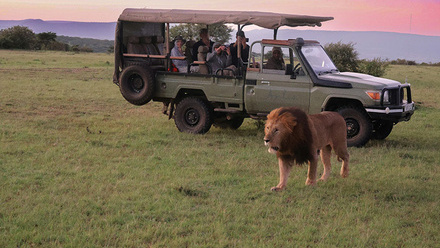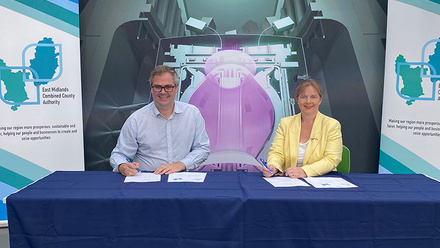Advancing academic achievement
The academic landscape can be daunting at any stage of your career. Materials World gleans some advice from professionals about the different skillsets an academic can hone on their journey.
Lecturing
Professor Ben B Xu FIMMM, Acting Head of Department of Mechanical & Construction Engineering at Northumbria University, UK, and Chair of the IOM3 Materials Characterisation & Properties Group
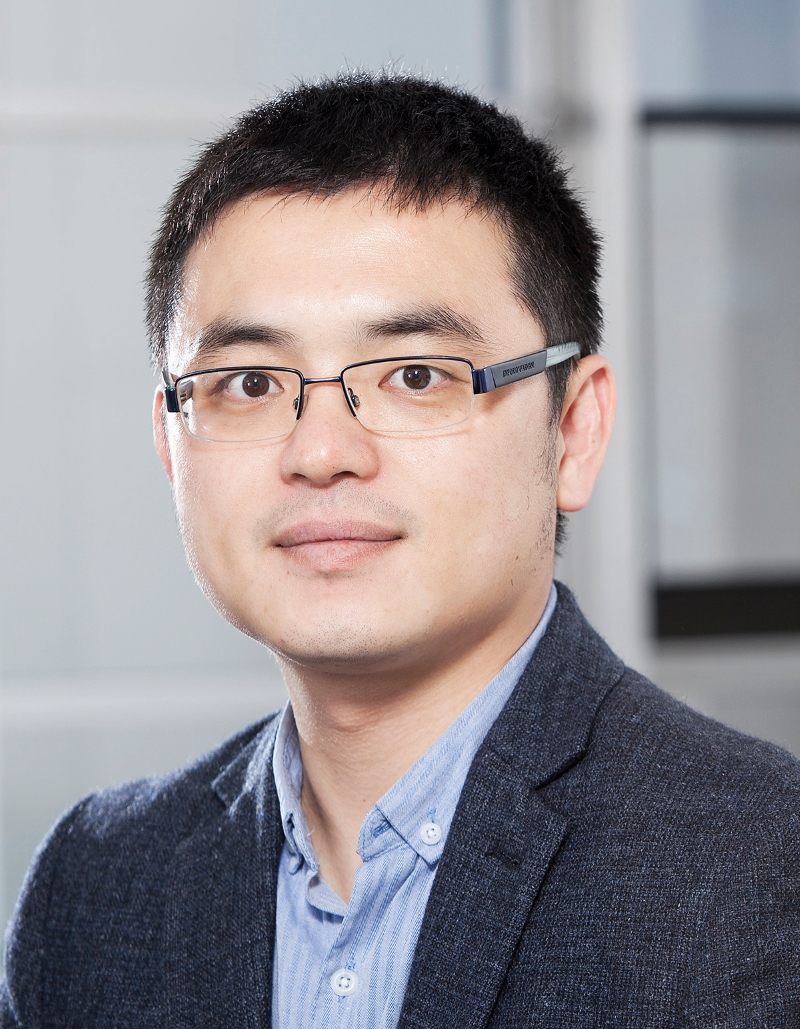
As a lecturer, how important is it to hone your public speaking skills in preparation for speaking to students?
No matter how knowledgeable a lecturer may be, without effective communication, learning can become more challenging. Lecturers rely on effective communication in various facets of their role. Effective communication should inspire interaction from and engagement with students.
How have your skills in this area evolved since you began your career?
At the beginning of my career, I enhanced my public speaking skills by observing noteworthy and exceptional presentations, and learning from them. To ensure effective delivery, I meticulously prepare presentation materials and extensively practice beforehand.
During public speaking, my focus remains steadfast on the core messages, aiming to captivate and sustain the audience’s attention. These principles serve as the cornerstones guiding my continuous efforts to refine and improve my speaking skills to the public.
How much time do you need to devote to preparing a lecture?
During the initial stages of my career, the preparation time for crafting a lecture was notably more extensive, equivalent to face-to-face delivery time (say, averaging around two to three hours for a two-hour lecture). However, as my skills have evolved and refined, I have streamlined my approach. Presently, for a two-hour lecture, I strive to condense the preparation time to approximately one hour, leveraging the experience and efficiency I’ve gained.
What are the challenges in lecturing that other lecturers should watch out for?
Understanding the different learning challenges among students. Teaching to large class sizes (over 80). Lack of effective communication. Time management. Feedback and assessment. Motivation and engagement. Managing expectations from students with diverse cultures or backgrounds.
What makes a good lecture?
Primarily, a successful lecture should focus on audience engagement. This can encompass various strategies, such as commencing with an explanation of the significance of the lecture’s content to the students.
Sustained engagement can be achieved through strategically placed activities that involve active participation from the audience. In essence, regardless of the approach taken, a lecture should epitomise a dynamic two-way interaction, where the exchange of ideas and interactions between the presenter and the audience harmoniously contribute to a meaningful learning experience.
Top tips for lecturing
Preparing the lecture with a clear/featured structure to be shown to students at the beginning of class.Engage the whole class with diverse and interesting teaching elements.
Use multimedia/online resources to enhance your presentation.
Bring interactive activities into your class.
Applying for research grants
Dr Masoumeh Faraji MIMMM, Senior Lecturer in Sustainable Manufacturing and Materials, Coventry University, UK

As an academic researcher, how important is it to hone your skills in applying for research grants?
Costs for research activities in academia, including the researcher’s time, is usually expected to be funded through external bodies. Based on their priorities and research agenda, research funding bodies, and sometimes industries, cover various research costs through funding schemes (usually called research grants) over the year.
Due to the high number of applications from researchers and the limited availability of the resources, these grants are very competitive and hard to secure. The applications go through a rigorous review and selection process by reviewers who may not have first-hand experience of the narrow topics and are only following certain criteria. Therefore, specific skills are required to communicate the research topic in a ‘sellable’ language to the reviewer(s) and the selection panel of different backgrounds.
The significance of grant writing and grant winning skills is that if a brilliant research idea fails to get funding, it would simply be discarded.
How have your skills in this area evolved since you began your career?
Partly through experience of preparing and submitting applications, then through attending grant-writing events in my own institution and external organisations.
Very early in my career I learnt to distinguish between writing for a journal and a grant proposal. Then I attended workshops dedicated to grant writing that were relevant to my discipline. Based on my experience, discipline matters, and advice should be sought from professionals in a similar subject area. Project ideas should be timely. If you have an excellent idea now, you should prepare an application now, as this idea may become outdated very soon. Grants are usually given based on their novelty as well as their timeliness.
How much time do you need to devote to funding applications?
In my view, this will depend on your experience, as well as the scale and size of the proposal. The less experienced you are, the more time you may need, and the larger grants with various partners require more time than the smaller ones. But, in general, it should be between two weeks to a maximum of three months. Sometimes allowing more time can jeopardise the timeliness and, therefore, a balance between time and depth needs to be maintained.
What are the challenges in completing and submitting such applications that researchers should watch out for?
In academia, various tasks and deadlines usually need to be met. Hence, one of the challenges is allocating continuous hours to develop and complete the proposal. Another challenge is the project idea and its relevance to the call for funding itself.
Nowadays, funding bodies require a few different – sometimes contradicting – requirements, and trying to narrate the proposal to meet these requirements can be a challenge.
Having a good track record and national (and international) scientific recognition are also key factors in securing a positive outcome.
How has the process/criteria evolved over the years and how do researchers need to adapt?
With more environmental and social awareness, almost all funding bodies require consideration of sustainability, environmental and societal impact of the proposals. Undoubtedly, researchers need to attend workshops and events run by their professional bodies to equip them with relevant knowledge of the current narratives around their disciplines.
Top tips for submitting applications for funding
Undertake some in-depth research about funding bodies in your area and the topics that they are currently funding. Have your eyes on some of their calls in anticipation that they may recure in the next funding rounds.
If you have a project idea, begin preparing a work plan based on the current calls for funding, even if you have not built your track record yet.
Do some research about potential partners. Most funding bodies prefer collaborative projects.
Build a track record by publishing in reputable journals. Also, consider networking and presenting your work at national and international events and conferences to win the required scientific recognition.
Plan well and work on your time management. Free up blocks of continuous, uninterrupted hours to write a coherent proposal and allocate enough time.
Ask more experienced colleagues for feedback, and ideally ask for your institution’s support to work on your first proposal under mentorship of your senior colleagues.
Carrying out experiments
Sofia Diaz-Moreno is the Science Group Leader for Spectroscopy Village at Diamond Light Source, UK
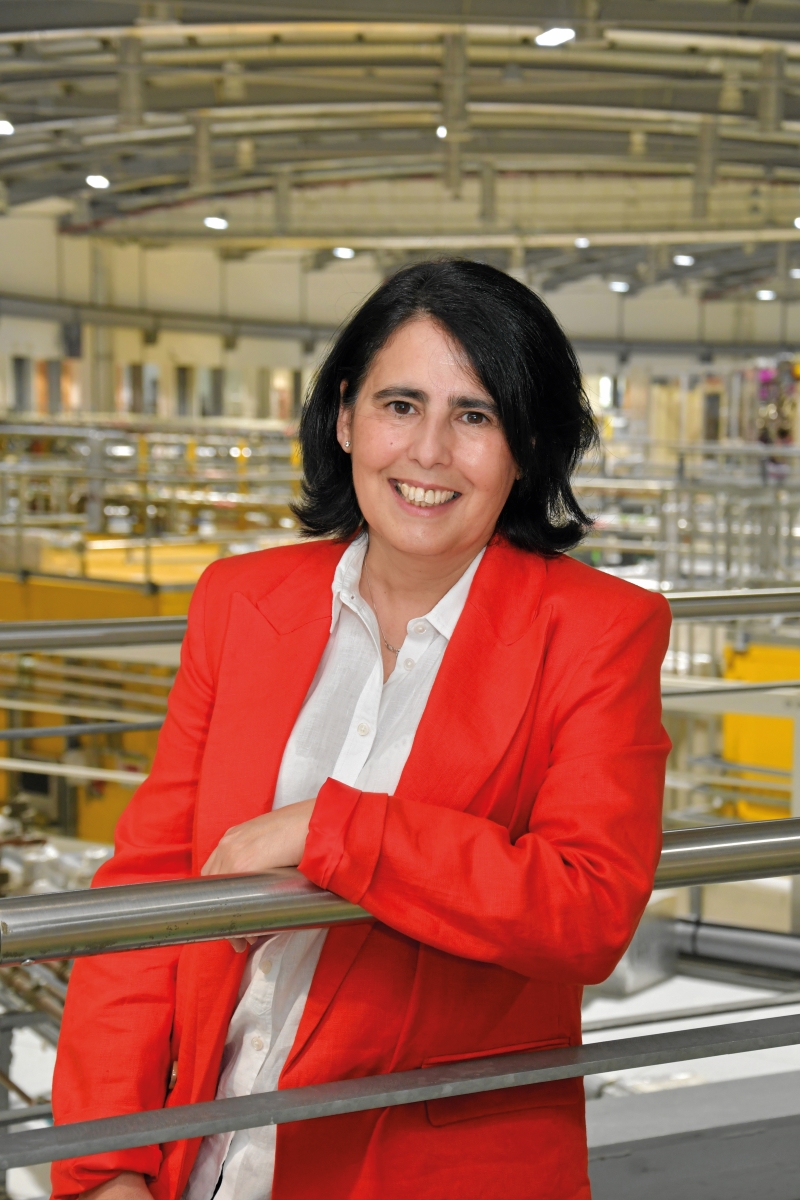
Your role involves running multiple experiments in collaboration with academic researchers, what do you find works well in terms of putting methodology into practice?
There has to be good communication between the different team members. With more and more complex experiments, there is a requirement for teams to be multidisciplinary, and each team member should have a clearly defined area of expertise and role within the team. It is sometimes challenging to find a common language, but this is part of the excitement as there are always new things to learn from each other. The joy of collaborative research is to be able to put all these different bodies of expertise together to deliver new scientific insight.
And what are the common pitfalls in planning complex experiments?
Not realising that an equal amount of effort is required to prepare for an experiment as to do it. Also, when an experiment is particularly complicated, there is a tendency to concentrate on the most challenging issues of its implementation, only to overlook something trivial but absolutely essential.
A typical example would be to start an experiment that you have spent months preparing for, only to realise that you have forgotten to re-stock a basic chemical that you used last time. You then have to run around, calling in favours, to see if somebody has the compound in stock, so that the experiment can proceed.
How best can researchers deal with the large amount of data generated?
Just as important as having a good experimental plan, is the need for a good post-experiment analysis strategy. This can
be everything from ensuring that you have access to sufficient computational resources, to having the skilled scientists in place to properly process and interpret the data. It is also essential to keep a good log of all the data that has been collected under the various experimental conditions, so trends and correlations can be easily established.
Do you think it is okay to completely change an experiment as it plays out in real time if the practice does not match the theory?
Experiments are designed to test hypotheses, so doing an experiment and not getting the answer that you are expecting is part of science – actually the most exciting part. This tells you that your understanding of a phenomenon is incomplete, and that more experiments are necessary. The experimental facts cannot be ignored because they do not fit the theory. New theories have to be postulated with more experimental evidence.
Instead of completely changing the experiment, the correct step is to plan more experiments, so more evidence can be found.
How did you get used to helping researchers with experiments in very different specialities, and being able to apply scientific principles to an experiment that is different to your area of expertise?
The most important aspect is to be willing to listen carefully and to understand what the researcher wants to get from their experiment. The more information you get, the more successful the experiment will be, as you can help them to design the most appropriate methodology. Luckily for us, the scientific principles are the same regardless of the science area, so it is not difficult to make useful contributions.
Tips for efficiently running experiments in a given timeframe
Have a clear plan for the experiment, but you also have to be ready for any eventuality and accept that plans can change.Maintain a degree of flexibility. The most successful experiments have a plan A, but also a plan B and C and D, etc. Sometimes things happen during your experiment that are completely outside your control but that prevent you from doing what you had planned.
Watch out for the unexpected – at some stage during the experiment, something extremely interesting and unexpected may happen. Do not be afraid to spend time investigating this. At the end of the day, science is about discovery, and if you know the result of the experiment before you do it, then it is not an experiment.
Postdoctoral research
Dr Vinothini Venkatachalam MIMMM, Research Fellow of Ceramic Science and Engineering at the University of Birmingham, UK
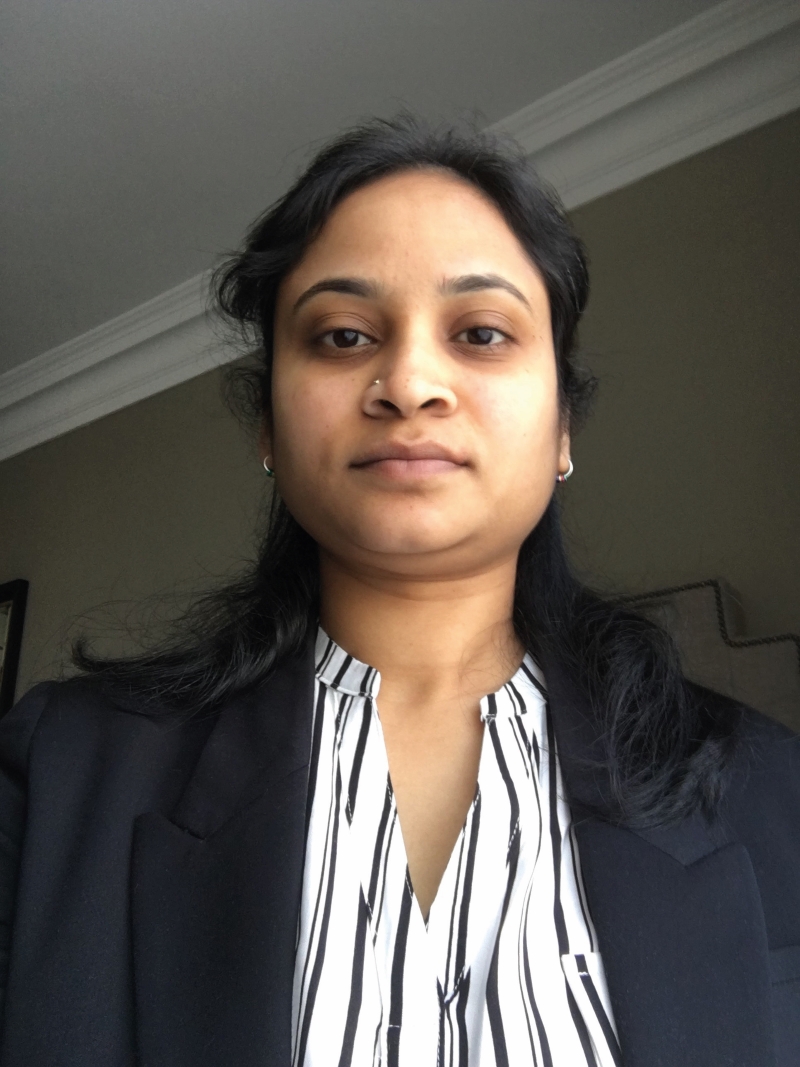
What are the key challenges related to beginning an academic career?
Job market competition and security – there is often intense competition for academic positions, especially in prestigious universities and for tenure-track positions. Many early-career academics are on fixed-term contracts or as adjunct professors, which can lead to job insecurity and lack of benefits.
Tenure and promotion pressure – meeting the criteria for tenure and promotion can be stressful.
Publishing pressure and ethics – early-career academics are often under pressure to publish research papers in reputable journals to establish their research credentials. Maintaining the highest standards of research ethics and integrity is critical, but can be hard in the face of external pressures.
Grant funding and funding cycles – securing research funding is crucial for research, but it can be highly competitive.
Teaching responsibilities – early-career academics may have heavy teaching loads, including multiple courses or large class sizes. Balancing teaching and research can be difficult, especially when establishing a research agenda.
Mentorship and support – it can take time to find influential mentors and supportive colleagues.
Networking and collaboration – building a professional network and establishing collaborations is not always straightforward, particularly for those new to the academia.
It’s essential for early-career academics to actively manage their careers and prioritise their well-being to succeed in academia.
How have your academic skills evolved?
There are many key academic skills that have developed, such as:
Critical thinking – the capacity to critically evaluate existing research, identify gaps in knowledge, and develop innovative research questions and hypotheses.
Data analysis – proficiency in data collection, statistical analysis and interpretation of research results.
Writing and publishing – stronger academic writing skills to prepare research papers, reports and proposals, as well as the ability to publish findings in reputable journals.
Communication – effective communication skills, including presenting research findings at conferences, collaborating with colleagues, and explaining complex concepts to both academic and non-academic audiences.
Project management – the ability to plan, organise and manage research projects efficiently, including time and resource management.
Collaboration – to leverage diverse expertise, working effectively in a team, often in interdisciplinary settings.
Grant writing – competence in writing grant proposals to secure funding for research projects. Learning about the funding system and understanding the expectations of the funding bodies.
Teaching and mentoring – depending on the institution, postdocs may be involved in teaching and mentoring undergraduate or graduate students. Also, supporting student research projects.
Adaptability – flexibility to changing research priorities and methodologies. This is very important as we evolve as a postdoc to extend our knowledge and expertise to related or allied research so that they can complement each other.
Ethical conduct – a solid commitment to research ethics and responsible conduct of research.
What is the role of a supervisor?
A supervisor plays an essential role in the career and skills development of the postdoctoral researcher. They serve as a first mentor, guiding and supporting the researcher’s academic journey, and can offer insights into the field, share their experience and help the postdoc navigate the academic landscape.
They help postdocs redefine their research goals and objectives; facilitate the development of specific academic skills; introduce them to other researchers, potential collaborators and experts in the field; provide constructive feedback on their work, including research proposals, manuscripts and presentations; assist in securing resources for research, such as funding, laboratory space and access to equipment; support their career planning and advancement; instill a strong sense of ethics and responsible conduct of research in their work; and allow them to lead projects, make decisions and build their research identity.
Supervisors also advocate for their postdocs within the institution, helping them access opportunities, resources and recognition for their work.
Overall, a supervisor’s role is not just overseeing research but also nurturing postdoctoral researchers’ academic growth and development. Their mentorship and support are critical for postdocs to acquire the skills and knowledge necessary for a successful academic career.
What other skills have you applied to academic research over the years?
Some key skills that take time to build and apply are:
Cultural and emotional intelligence – understanding and collaborating with researchers across different geographies, and fine-tuning the research approach and strategies.
Soft skills – the academic field requires interaction with people from various backgrounds, so improving soft skills is important.
Endurance – academic research brings many challenges other than technical that require endurance to stay positive.
Top tips for submitting applications for funding
Undertake some in-depth research about funding bodies in your area and the topics that they are currently funding. Have your eyes on some of their calls in anticipation that they may recure in the next funding rounds.If you have a project idea, begin preparing a work plan based on the current calls for funding, even if you have not built your track record yet.
Do some research about potential partners. Most funding bodies prefer collaborative projects.
Build a track record by publishing in reputable journals. Also, consider networking and presenting your work at national and international events and conferences to win the required scientific recognition.
Plan well and work on your time management. Free up blocks of continuous, uninterrupted hours to write a coherent proposal and allocate enough time.
Ask more experienced colleagues for feedback, and ideally ask for your institution’s support to work on your first proposal under mentorship of your senior colleagues.
Writing papers
R Vasant Kumar FIMMM, Professor and Distinguished Research Fellow of Materials Chemistry at the University of Cambridge, UK, and Editor of the IOM3 Mineral Processing and Extractive Metallurgy Journal
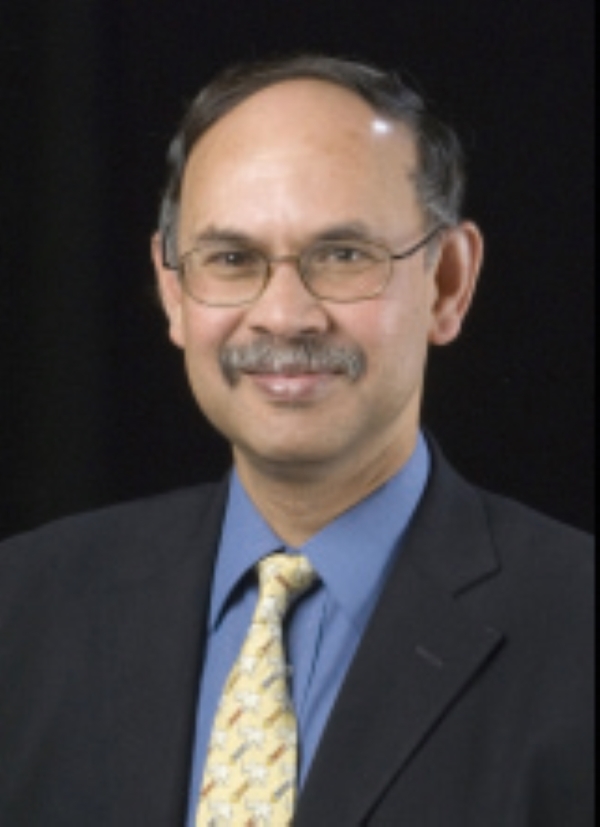
What advice would you give to a young academic in developing their scientific reporting and writing abilities?
Read several articles on a topic of your direct research interest and make notes on those papers with respect to the overall quality of each, noting whether the abstract and the conclusions are informative and relate to the contents of the paper; the quality of the sections relate to the introduction, experimental details, results and discussions; and whether the illustrations/tables are informative and add real value to the text.
Also, tease out evidence provided for the conclusions, the details of equipment and experimental set-up, and whether they are sufficient for you to try and replicate the experiments, examining for scientific rigour and readability. Is there a clear storyline and a clear context in which this work is done? Have the authors clarified why this work is important?
It is worth asking the question of “how will I approach the same paper if I am given access to all the published results in that paper? Will I use the same title or how can I make it better?”
Follow through a few referenced papers that appear to be key to the current paper, either used as corroboration or quoted with criticism, and judge the strength of the evidence provided.
Discuss your findings with fellow academics and mentor(s) to test your approach.
Begin by constructing your progress reports in a publication format and get feedback from other researchers you are working with.
Build collaborations with other researchers with similar and complementary interests, with a view to generate knowledge that can be published jointly.
What do you look for in an impactful abstract?
From reading the abstract, the direction of the paper must be clear and include why this paper makes an important contribution, thus addressing the background and the context, as well as the gap this paper is filling.
The key approaches and methods undertaken in the paper should be described with maximum economy to minimise length. The key results should be highlighted with brief supporting statements to enhance the implications or the value of those highlighted results. Results should be given the highest priority and any unexpected findings should be emphasised and plausible explanations provided. The abstract can be concluded with a message, a future perspective, or showing a path for technological or social impact.
Abstracts should also conform to the formal structure of the selected journal, well within the specified word limits.
What do you think are common mistakes in writing papers that affect how reviewers perceive the study?
Common mistakes relate to papers that are poorly written and thus the reviewer is unable to judge the paper’s true merit.
The abstract is vague and the conclusions do not relate to the descriptions provided in the paper. The illustrations are not easy to follow because they are overcrowded and do not adequately relate to matters covered in the paper. The units are mixed and scientific notations are not followed.
Evidence for the conclusions is not provided and the scientific rigour is lacking in the discussions. The experiments are not fully or properly described. References may not adequately cover key papers or are just taken from a very narrow period or from some limited set of journals.
Reviewers are also looking for new results, new approaches and some new angles that are not already covered in other studies. A good awareness of the literature and describing your paper in that context should be present.
Do you think publishing a study that honestly reflects the challenges and potential change in methodology is helpful for wider learnings?
Publishing is an important process by which work is shared with interested stakeholders with a very wide potential reach globally. A paper can influence other researchers and practitioners directly in the field or in related fields. Impacts can arise from criticisms of new approaches, which will help open and widen discussions on a specific topic or methodology.
Knowledge grows from writing, reading and citing publications. AI will offer further help starting from now and more so soon via data mining and self-organising knowledge for enhanced impact and accelerated technological innovation.
When researchers are collaborating across long distances, how can they ensure that their efforts read coherently?
Collaborating across distances has been a common practice in the past, and also frequently arises from large funded programmes, exchange programmes, visiting scholars and other short-term visits.
Efforts required may often be higher than other single group or individual faculty publications to ensure coherency. During the early phase of the manuscript preparation, clear task-lines should be assigned, with the agreed first author(s) and/or corresponding author(s) building a coherent draft embedding illustrations and data available from the multiple institutions.
A long period of free comments and corrections from all authors should be invited. Free discussions and decisions on the journal selection should be made with agreement from all authors. The order of authors and the list of contributions from each author should be discussed, and agreement on the list should be arrived at and formally noted.
The final draft should be assigned to a senior researcher with experience in publishing papers. Another senior researcher should be assigned for a final check before proceeding to submit. Also, an action plan for dealing with reviewers’ comments and requests for revisions should be in place.
Top tips for writing and submitting papers
Build your storyline – assemble all your results, data, theoretical foundation, illustrations, photographs, tables and experimental procedures in different orders to tease out the storyline.This is a good time to build the referenced papers list to aid the germination of your storyline.
Write a very rough draft or even bullet points to obtain a logical structure to your storyline. Pictures arranged in an optimised order can help in building the storyline.
Clarify in a paragraph how your storyline sits within the current scientific and scholarly framework, and the context in which you are addressing something new or filling a known or unknown gap, and why in your view these are important. This initial effort can help provide the text for your paper’s abstract, introduction and conclusions.
Choose the most appropriate journal, seek advice from colleagues, senior staff and mentor(s).
Write the full paper in a draft form such that the storyline and the context are clear from the beginning to the end – be clear how the theoretical foundation and your experimental work relate to each other, and read and revise frequently to improve vocabulary, grammar, syntax, structure and illustrations.


